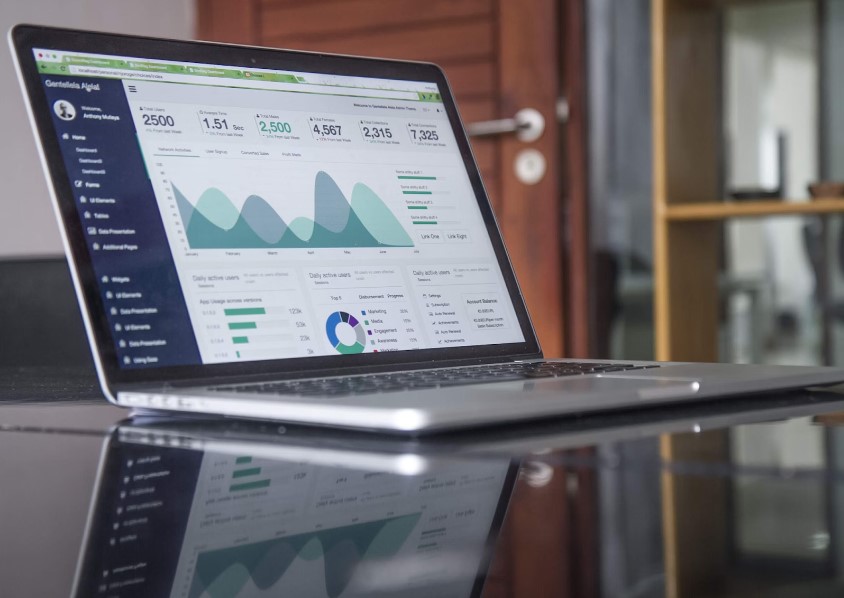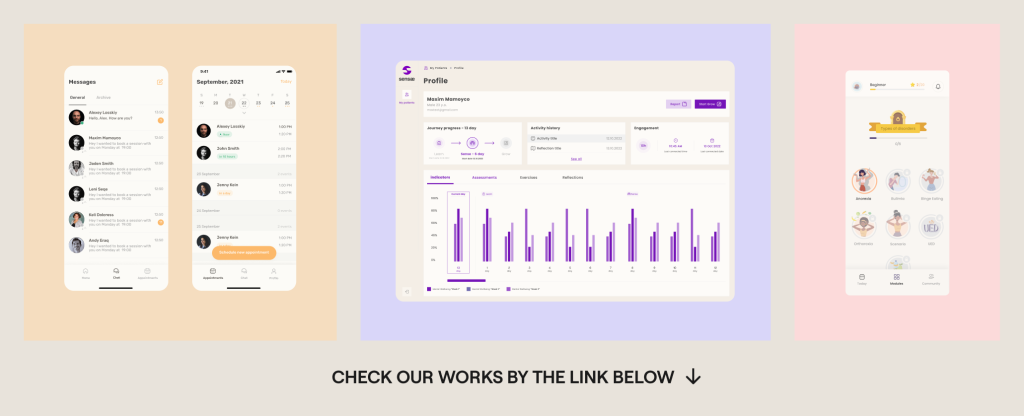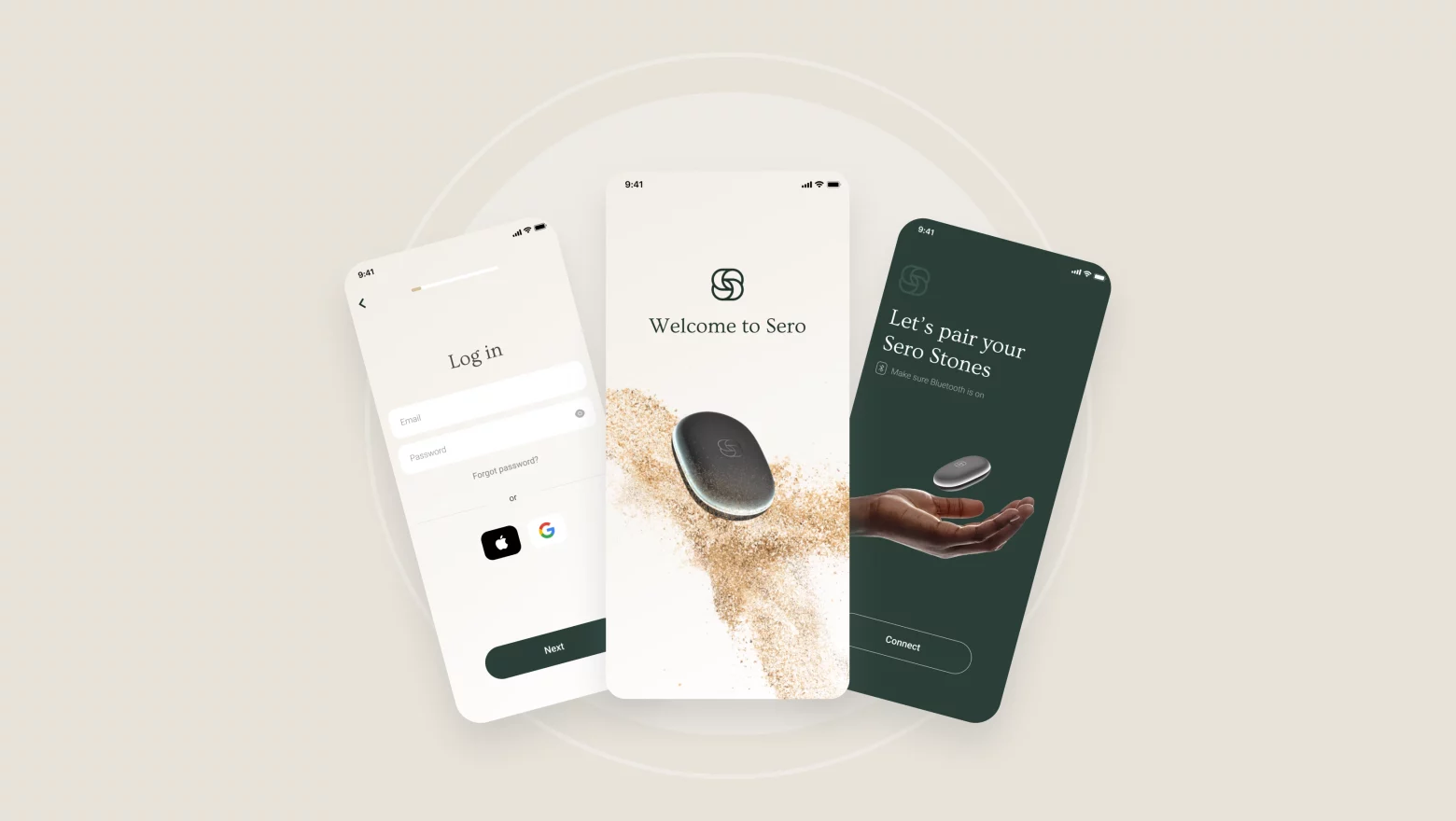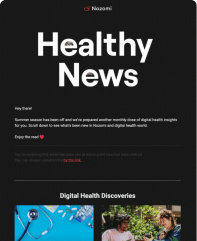Big data in the healthcare industry has emerged as a cornerstone of innovation. Custom healthcare software, designed to meet specific organizational needs, increasingly relies on big data in digital health to transform vast amounts of information into actionable insights.
This integration offers unprecedented opportunities to enhance patient care, streamline operations, and drive strategic decisions. As we delve into the role of big data within custom healthcare software, we’ll explore how it’s shaping the future of healthcare delivery, making it more personalized, efficient, and effective.
The Power of Big Data in the Healthcare industry
Big data is revolutionizing healthcare, yet many organizations are still on the sidelines. Here’s a rundown of how it’s transforming the scene for providers and patients alike:
- Elevating Patient Care
The primary perk of big data? Boosting patient care. Dive into any recent study and you’ll find compelling evidence that big data for healthcare sharpens diagnostic accuracy. This tailored approach not only means more precise diagnoses but also enhances the effectiveness of predictive analytics in healthcare.
Consequently, patients enjoy top-notch care precisely when they need it.
- Boosting Operational Efficiency
Big data for healthcare is also a game-changer for operational agility within healthcare facilities. By decoding data patterns and trends, hospitals can streamline operations, slash wait times, and optimize resource distribution.
A McKinsey report suggests that big data could slash U.S. healthcare costs by $300 billion to $450 billion annually just by ramping up operational efficiency.
- Cutting Costs
Who doesn’t want to save money? Big data analytics identifies inefficiencies and curtails waste, which translates to significant savings. Predictive analytics, for example, can anticipate patient admissions, helping hospitals manage resources more efficiently and dodge unnecessary expenditures.
That same McKinsey study points to potential healthcare savings of 12% to 17% through savvy big data usage.
- Boosting Patient Engagement and Satisfaction
Big data healthcare doesn’t just streamline healthcare; it personalizes it. This personal touch boosts patient engagement and satisfaction. By mining data on patient feedback and interactions, healthcare providers can pinpoint improvement areas and customize services to better meet patient expectations.
Enhanced engagement and satisfaction naturally follow when hospitals fine-tune their operations using big data insights. Plus, wearables — a key component of big data in healthcare — play a pivotal role in fostering patient involvement by tracking health metrics in real-time.

In summary, the impact of big data in healthcare is profound, offering benefits from personalized patient care to operational efficiencies that can lead to substantial cost savings and improved patient experiences. If you’re not on this bandwagon yet, it’s time to hop on!
Healthcare big data use cases
Big data is a game-changer in healthcare, weaving its way through cutting-edge technologies like predictive analytics and personalized medicine. Let’s dive into how it’s reshaping the industry.
- Personalized Medicine
This innovative approach crafts treatments specific to individual patient profiles by sifting through massive datasets of genetic information and lifestyle factors. Here’s big data usage in healthcare:
- Using genomic sequencing, doctors can pinpoint genetic factors responsible for diseases like cancer and customize therapies accordingly.
- Wearables monitor vital signs and lifestyle patterns, helping craft personalized wellness strategies.
- Predictive healthcare data analysis
This method utilizes past and current data to foresee future health scenarios, enabling early interventions for better health outcomes.
Big data usage in healthcare:
- Using EHRs and social data to predict which patients might frequently need hospital readmission, allowing for preemptive care plans.
- Healthcare data analysis of patterns from health data and social media to anticipate disease outbreaks, such as predicting peak times in hospitals.
- Clinical Decision Support (CDS)
CDS systems enhance healthcare delivery by providing timely patient-specific insights to clinicians, improving decision-making.
Practical applications include:
- Automated alerts about potential drug interactions or necessary preventive care.
- Diagnostic aids that propose potential illnesses based on comprehensive patient data.
- Population Health Management
This strategy examines data across populations to enhance overall health outcomes, focusing on health determinants and effective interventions.
Examples of big data in healthcare:
- Detecting trends in disease and resource use to better distribute medical services.
- Crafting targeted programs to decrease chronic disease rates in vulnerable groups.
- Precision Medicine
Similar to personalized medicine but with a focus on the unique genetic, environmental, and lifestyle factors of each individual to optimize treatment efficacy.
Healthcare big data use cases:
- Tailoring cancer therapies based on the genetic variants of a tumor.
- Using pharmacogenomics to forecast patient responses to drugs, maximizing treatment effectiveness.
- Drug Discovery and Development
Big data slashes time and costs in drug development by allowing researchers to more effectively parse through vast biological and chemical datasets.
Applications include:
- Employing AI to predict interactions between chemical compounds and biological targets.
- Using historical trial data to pinpoint biomarkers that inform drug effectiveness.
- Clinical Research and Trials
Big data optimizes clinical trials by enhancing patient selection, monitoring, and outcomes evaluation.
Examples of big data in healthcare:
- Analyzing real-world data to quickly find suitable trial participants.
- Implementing adaptive trial designs that adjust based on ongoing data results.
- Disease Prediction and Outbreak Control
Advanced data analytics bolster disease surveillance, enabling quicker outbreak detection and response.
Applications involve:
- Monitoring travel and health data to anticipate and mitigate infectious disease spread.
- Applying machine learning to identify regions at risk of outbreaks, providing a proactive public health response.

In essence, big data healthcare analytics isn’t just transforming healthcare—it’s setting the stage for more predictive, preventive, and personalized care that could save lives and streamline medical processes. This isn’t just the future of healthcare; it’s happening right now, and the possibilities are as vast as the data we’re learning to harness.
Navigating the Complex Landscape of Big Data Healthcare
Now let’s chat about the tricky world of big data in healthcare and challenges and opportunities. Despite its growing popularity, healthcare still lags behind other sectors in harnessing the full potential of big data. Let’s unpack some of the hurdles that keep it from widespread adoption in the health sector.
- Guarding Patient Info Like Fort Knox
It’s not just about ticking the HIPAA boxes; protecting patient information is a full-on strategy involving robust cybersecurity measures and comprehensive staff training. Cloud technology is becoming a key ally in shielding patient data from prying eyes.
- Merging Data Streams: A Symphony of Information
Picture trying to conduct an orchestra where every musician plays from a different score. That’s what it’s like integrating various data sources in healthcare—from EHRs to lab reports. Without solid interoperability, data can end up fragmented across departments. Encouraging interdepartmental cooperation and fostering a data-driven culture from the get-go are vital steps toward seamless data integration.
- HIPAA Compliance: The Big Puzzle
Navigating HIPAA compliance is a bit like walking through a maze without a map. While healthcare data must adhere to HIPAA to safeguard personal information, there’s no clear guideline from government bodies on what exactly compliance looks like. Healthcare organizations are often left to cobble together their own compliance strategies for big data usage, which is no small feat.
Big Data in Action: Beyond Theory
Let’s see how big data is currently transforming healthcare through real-world applications.
- Advancing Cancer Research
What about big data analytics in healthcare promise and potential? The Cancer Moonshot initiative, launched during the Obama administration, uses big data healthcare analytics to track cancer treatment outcomes, aiming to pinpoint the most effective treatments for various cancer types.
- Mapping Out Health Strategies
The University of Florida is using Google Maps alongside public health data to generate heat maps of population growth and disease, helping allocate medical resources more effectively.
- Machine Learning Saves Hearts
Mount Sinai Health System’s use of machine learning to analyze EHRs has identified patients at high risk of heart failure, allowing early interventions that cut hospital readmissions by 20%.
- Streamlining Hospital Operations
Clinics use healthcare data analysis to optimize patient flow and staff scheduling, reducing wait times and boosting operational efficiency—setting a benchmark for others in the healthcare industry.
- Tackling Opioid Abuse Head-On
In a groundbreaking study, Blue Cross Blue Shield and Fuzzy Logix used big data to pinpoint over 700 risk factors for opioid abuse, marking a crucial step towards prevention.
Big data is more than just numbers; it’s a revolution in how healthcare can be delivered, with the promise of enhanced patient care, streamlined operations, and groundbreaking research. Let’s keep pushing the boundaries, shall we?
Conclusion
The integration of big data into custom healthcare software marks a significant leap forward in how we approach medical care and health management. By harnessing the power of massive data sets, healthcare providers can offer more tailored treatment options, predict patient trends, and optimize their operations. As big data healthcare technology advances, big data in healthcare case study will continue to expand, promising even greater improvements in patient outcomes and operational efficiency. Embracing this data-driven approach is crucial for healthcare organizations aiming to lead in a future where personalized care and operational excellence are paramount.
Absolutely, the integration of Big Data into healthcare apps is revolutionizing the field, and we’re fully immersed in developing mobile health apps that leverage this transformative technology. Interested in discovering more about app creation and strategic implementation? Check out our detailed guide here.
Our mission is to equip healthcare startups with stellar design and development services for their digital products and to assist healthcare organizations in navigating transformative shifts.

Curious about our projects? Take a peek at our portfolio featuring case studies on mHealth applications at: https://studio.nozomihealth.com/work
Got questions or want to chat? Shoot us an email at m@nozomihealth.com, and let’s talk about how we can bring real benefits to your product.







